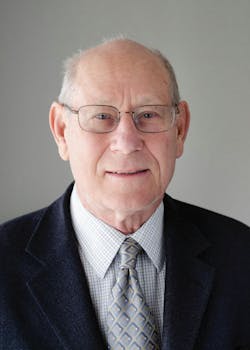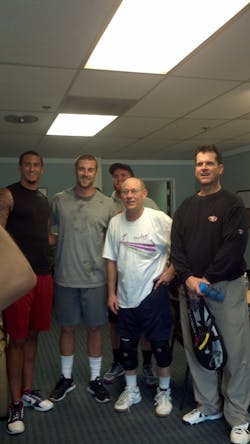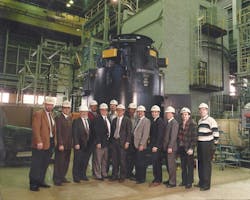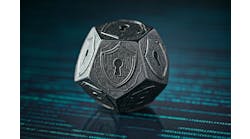Editor’s note: Please join us in congratulating the newest inductees to the 2024 Process Automation Hall of Fame. Joe Weiss is managing partner of Applied Control Solutions Inc., and an ISA99 ICS cybersecurity pioneer and blogger. Mark Darby works extensively with gas refineries and chemical processing plants. He also serves on the advisory board at Texas Tech University. Marcos Peluso served as director of development for fieldbus at Emerson.
Over the past several weeks, they talked to Control about their careers, accomplishments and thoughts on the future of process control and automation. In this series, we tell their individual stories about their past careers and catch up on their present work. We hope you enjoy getting to know these fabulous engineers and learning about their career journeys.
It’s not often an engineer gets a chance to “school” a few championship-level NFL quarterbacks in an athletic competition, but then again, Joe Weiss is no slouch on the racquetball court. In fact, he’s played in his own championship—the racquetball doubles national championships. It was the early 2010s when he met then San Francisco 49ers head coach Jim Harbaugh and quarterbacks Alex Smith and Colin Kaepernick, among other players, trying their hands with the paddles at a San Jose, Calif., racquet club. He ended up giving them lessons, and the self-described “little old guy with knee pads” was the best player on the court that day.
It wasn’t Weiss’ first foray on the racquetball court with professional athletes. He had a similar experience with a few Golden State Warriors.
Not one to brag when he tells the story, Weiss simply points out they were all, “great athletes, but each sport requires some particular expertise.”
And, Weiss spent a great deal of time honing his racquetball skills and expertise, much like he has in his “day job” as managing partner at Applied Control Solutions Inc., which offers thought leadership to industry and government on control system cybersecurity and optimized control system performance. He’s also an ISA99 ICS cybersecurity pioneer, noted keynote speaker on control systems security, and (full disclosure) a regular blogger on the “Unfettered” blog at controlglobal.com. You might wonder where he found the time to get so good at racquetball?
Weiss’ eventful career in instrumentation and controls is still going strong, but when he graduated college in Arizona, he had no idea he’d be where he is today. His first foray into the business was in the heart of Silicon Valley, when it was still called the “Valley of the Heart's Delight,” before it became a technology mecca. He took a job with GE Nuclear Energy (now GE Hitachi Nuclear Energy) in San Jose. “Turns out it was in instrumentation and controls, so guess what? I’m an instrumentation and controls person,” he recalls with a chuckle.
He points to two or three projects he worked on at the time that shaped his career, but admits it wasn’t a straight and narrow path through the years. “It started this kind of river I've been on ever since, but it didn't flow straight,” he says.
Weiss, like his fellow inductees to the 2024 Process Automation Hall of Fame, spent his early career working with energy, in particular, the budding nuclear energy industry in the U.S. One project he worked on was a nuclear plant simulator, which Weiss quickly realized wasn’t modeled correctly. “If you pulled a rod somewhere in the core, all the sensors would all read the same thing,” he recalls. So, his job became figuring out how to correct it. Those who know and work with him today will quickly understand his attention to the details that can cause significant problems down the road (more on that later).
“That’s what I was doing in the 1970s, trying to fix this,” he says.
Unlike today, where Weiss encounters issues that turn out to be cybersecurity breaches, back then he was simply trying to correct mistakes.
Another career-shaping project at GE Nuclear was working with thermal neutron sensors in the boiling water reactors. The more water passing those sensors, the better the signal because the water “slowed down” the neutrons, so the sensors could give a flux reading, he explains. However, he encountered another seemingly small detail with big implications when GE testing showed that, if it allowed too much water to flow, the stainless-steel instrument tubes would bang on the fuel channels, which are zirconium.
It turns out, this same flow problem also became an issue at Japan’s Fukushima nuclear power plant (three decades prior to the plant’s infamous earthquake and tsunami-induced disaster). A junior engineer at the time, Weiss found himself on a team analyzing and correcting the problem. “That was my job, to analyze the data we were getting, and determine if the tubes were moving at their resonant frequency, which would indicate if they were moving around and banging on the fuel assemblies,” he says.
The third project he remembers was determining a better way to monitor the power inside a boiling water reactor. Instead of measuring thermal neutron flux, he says, they measured gamma radiation because “we wouldn't have to worry about how much water there was or anything else, and would get a much more accurate reading.”
Weiss was also on a team that traveled to the Duane Arnold Energy Center in Iowa to analyze it while it was operating. “We had to get dressed like we were going to the moon because we were literally inside the containment,” he recalls. “The only things between us and the reactor were those concrete and lead walls.”
This was among his initial work with control system cybersecurity that’s the core of his career today. “I started going to meetings on cybersecurity and almost everything I’d see had nothing to do with control systems, and each time I brought it up, I was told no one ever brought it up before,” he laments.
At the time, cybersecurity was the realm of information technology (IT) departments, leaving engineers to worry about their turbines and pumps. “It was always like a high school dance. There was IT on one side of the room and engineers on the other,” he says. “I didn’t want any part of that.”
When he started Applied Control Solutions, his goal was to take cybersecurity directly to engineering departments and “teach them what they need to know.”
He helped organize one of the first control system cybersecurity conferences. It had about 125 attendees and included three organizations that Weiss didn’t even invite. Not because he didn’t want them there, but because he didn’t know who they were [at the time] or why they’d be interested. One of those organizations was the National Transportation Safety Board (NTSB), which was in the process of finalizing a report on the Olympic Pipeline explosion in 1999 in Bellingham, Wash., which killed three people and took out a water treatment facility. He also recalls several attendees from an Asian country, which had suffered several control system cybersecurity incidents.
He was generating interest and progress for control systems cybersecurity, and around the same time, he helped start the ISA99 ICS Cyber Security standards efforts of which he was managing director for more than 12 years.
In between these efforts, Weiss authored one book and wrote chapters in several other books. He also received patents on instrumentation, control systems and operational technology (OT) monitoring.
These days, Weiss’ winding river has led him to work, speak and write about control systems and the threats from cyber-attacks. “Where I am today, there would have been no way I could ever have told you,” he admits. But his next stop is the Process Automation Hall of Fame.








